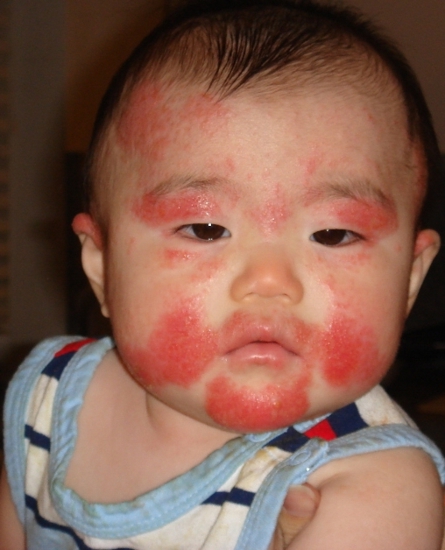Having an allergy is something that many people fear especially if it is a milk allergy. The life of a child suddenly becomes different once an allergy connected to milk they are taking is discovered. The first thing that a person should know is that anyone can have the allergy and it can disappear with time all on its own. While in some people the allergy just wears off it is not very rare to find a person who has this allergy even when they are well into their early twenties – although in many instances it ends by the time a person reaches adolescence.
In trying to look for a solution to the problem of people not being able to take cow’s milk or any other milk other than the mother’s, many research studies have been performed. There has never been a conclusive medical cure of the milk allergy and a person can only rely on the several methods approved by the medical organisations to reduce the symptoms as well as to treat the allergy. Or even to avoid it.

Because children are the group of people who are most prone to getting milk allergy, research has been concentrated on them. It has been discovered that the children who are fully breastfed by their mothers are less likely to get the allergy once the cow’s milk is introduced to them later. For the children who are wholly fed on or whose major diet consists of the formulas from when they are very young, they are more likely to get the allergy than the former group which is breastfed first exclusively. For the mothers who take a lot of cow’s milk, they risk getting their little ones suffer from this allergy. The proteins which are not compatible with the baby’s body will be passed on as they are from the mother. A lactating mother should therefore mind the cow’s products or any other products that have S1-Casein proteins.
There are three methods that one can use to treat the milk allergy today and they are as follows:
- Avoid giving cow’s milk to a child completely once it has been discovered that they are allergic to it. Although many babies will react to milk in about one week, a person should stop giving them the cow’s or any other milk that has the proteins that cause this allergy. After some time the child will outgrow this condition and will have no problem with the milk.
- Regular formulas that are found in the stores have proteins that have not been broken down and thus the allergenic proteins are still intact. A baby should be given the more refined formulas which have been extensively hydrolyzed. The proteins have been broken down into small particles and they won’t cause any problem for the baby.
- Amino acid based formulas have proteins in their simplest forms. These types of formulas are recommended if even after giving the baby the hydrolyzed milk their milk allergy condition doesn’t improve. In looking for the hydrolyzed and amino based milks, a person should ensure that the product they buy is exactly what they wanted.
Simon Jackson loves to share tips about dealing with milk allergy (interesting to know is that the Danish term is mælkeallergi).

